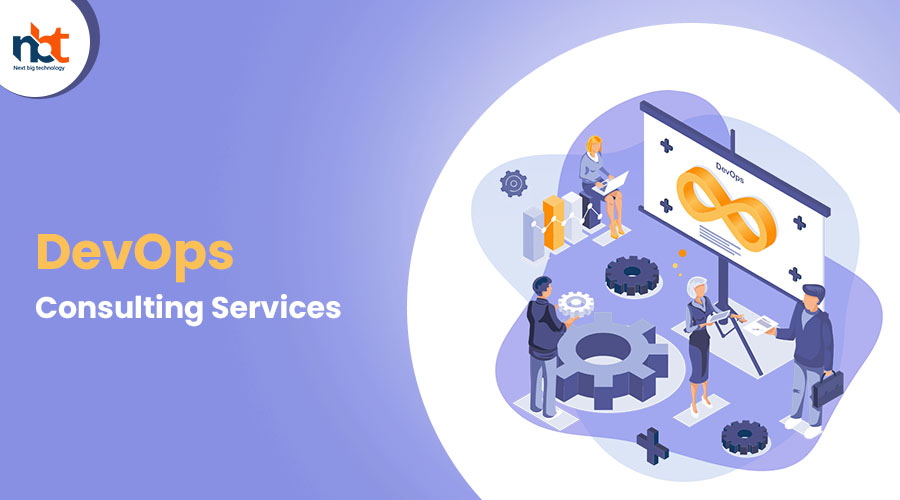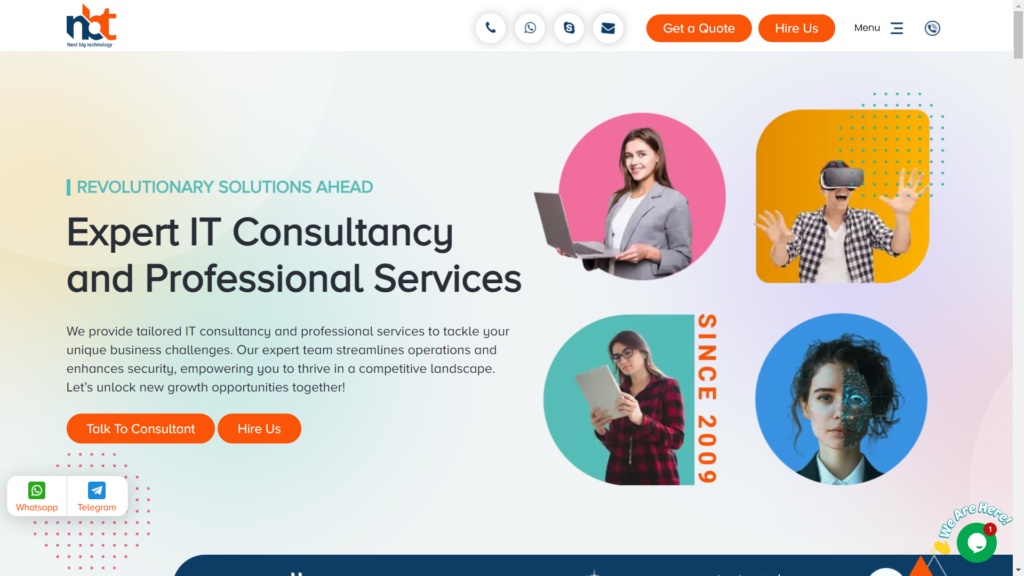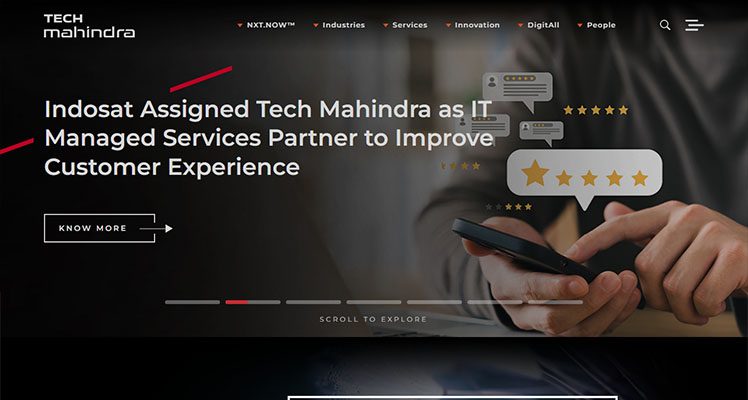In the age of digital transformation, DevOps has become the backbone of agile development, enabling faster software delivery, enhanced collaboration, and efficient workflows. India is home to some of the world’s leading DevOps consulting and service providers, offering expertise across a variety of industries. Here’s a detailed look at the top DevOps companies in India that are shaping the future of IT operations and development.
Table of Contents
1. Tata Consultancy Services (TCS)
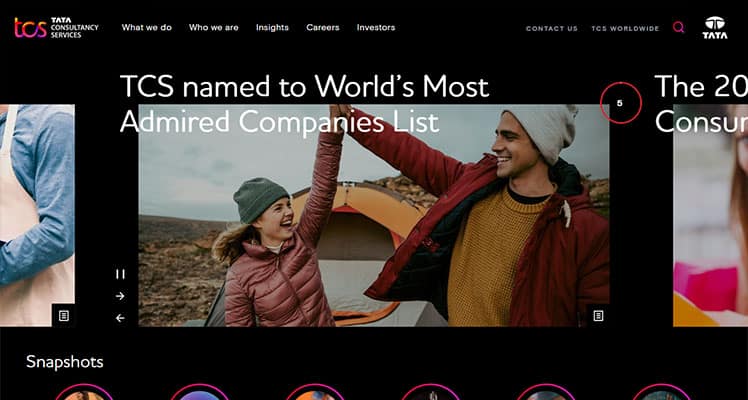
Headquarters: Mumbai, India
Overview:
TCS is a global IT services leader offering robust DevOps solutions. Their expertise in continuous integration, delivery automation, and cloud-based solutions has made them a trusted partner for enterprises worldwide.
Core Services:
- DevOps strategy consulting
- Continuous integration and deployment (CI/CD)
- Cloud-native DevOps solutions
2. Infosys
Headquarters: Bangalore, India
Overview:
Infosys combines DevOps with AI to offer scalable, automated solutions. Their proprietary tools and frameworks help businesses achieve shorter release cycles and improved software quality.
Core Services:
- Infrastructure automation
- DevOps maturity assessments
- Containerization and microservices
3. Wipro
Headquarters: Bangalore, India
Overview:
Wipro’s DevOps services focus on accelerating product delivery and improving operational efficiency. They specialize in end-to-end DevOps implementations for businesses of all sizes.
Core Services:
- Agile transformation with DevOps
- Kubernetes and Docker services
- Security-integrated DevOps (DevSecOps)
4. HCLTech
Headquarters: Noida, India
Overview:
HCLTech offers tailored DevOps solutions leveraging cutting-edge tools and technologies. Their focus on automation and collaboration has earned them a strong reputation in global markets.
Core Services:
- DevOps consulting and strategy
- Continuous testing frameworks
- Cloud migration and DevOps integration
5. Next Big Technology (NBT)
Headquarters: Jaipur, India
Overview:
NBT specializes in offering tailored DevOps consulting services for startups, SMEs, and enterprises. With a strong focus on scalability and security, NBT ensures faster deployment cycles and seamless integration between development and operations teams.
Core Services:
- DevOps as a Service (DaaS)
- Infrastructure as Code (IaC)
- CI/CD pipeline implementation
- Cloud and containerization solutions
6. Tech Mahindra
Headquarters: Pune, India
Overview:
Tech Mahindra helps businesses integrate DevOps with cloud technologies to enhance agility. Their frameworks support hybrid cloud environments and enable continuous innovation.
Core Services:
- DevOps automation tools
- Infrastructure management
- AI-driven DevOps analytics
7. Capgemini India
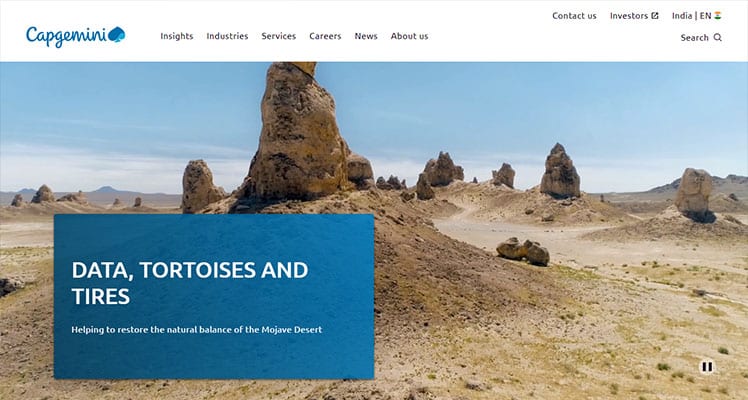
Headquarters: Mumbai, India
Overview:
Capgemini is a global leader in IT services, offering DevOps solutions that combine AI and automation. Their frameworks ensure high-quality deliverables in shorter timelines.
Core Services:
- DevOps assessments and audits
- Release orchestration
- Hybrid cloud implementation
8. Mindtree
Headquarters: Bangalore, India
Overview:
Mindtree’s DevOps services focus on continuous integration, delivery, and testing to ensure seamless operations. Their expertise in cloud and microservices enhances application reliability.
Core Services:
- DevOps implementation
- Cloud and serverless computing
- Monitoring and performance optimization
9. Persistent Systems
Headquarters: Pune, India
Overview:
Persistent Systems excels in providing DevOps solutions for enterprises undergoing digital transformation. Their focus on automation reduces costs and accelerates delivery cycles.
Core Services:
- DevOps platform engineering
- Automated testing solutions
- Infrastructure provisioning
10. Zensar Technologies
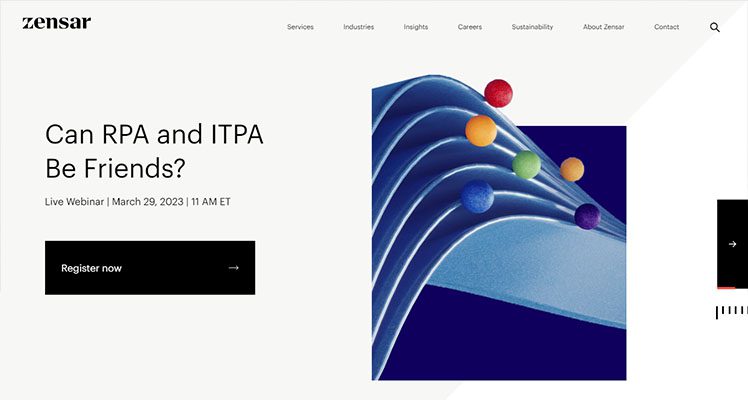
Headquarters: Pune, India
Overview:
Zensar focuses on delivering customized DevOps solutions tailored to the specific needs of enterprises. Their services reduce development cycles and improve release predictability.
Core Services:
- DevOps and Agile transformation
- CI/CD pipeline management
- Enterprise-grade monitoring solutions
Here’s a comparison table for the top DevOps consulting and service companies in India, highlighting their key features and services:
| Company | Headquarters | Key Services | Specialization | Notable Strengths |
|---|---|---|---|---|
| TCS | Mumbai | DevOps strategy consulting, CI/CD, cloud-native solutions | Enterprise-grade DevOps | Global presence, deep industry expertise |
| Infosys | Bangalore | Infrastructure automation, containerization, DevOps maturity assessments | AI-driven DevOps | Proprietary frameworks for automation |
| Wipro | Bangalore | Agile transformation, Kubernetes & Docker services, DevSecOps | Security-integrated DevOps | Strong focus on security and scalability |
| HCLTech | Noida | Continuous testing, cloud migration, DevOps consulting | Automation & collaboration | Robust cloud integration capabilities |
| Next Big Technology | Jaipur | DevOps as a Service (DaaS), IaC, CI/CD pipelines, cloud & containerization | Startup & SME-focused solutions | Tailored services, cost-effective implementations |
| Tech Mahindra | Pune | Automation tools, infrastructure management, AI-driven DevOps analytics | Hybrid cloud DevOps | AI-driven innovations and flexible solutions |
| Capgemini India | Mumbai | Release orchestration, hybrid cloud implementation, assessments & audits | AI & automation integration | Proven frameworks for faster delivery cycles |
| Mindtree | Bangalore | Cloud and serverless computing, performance optimization, monitoring | Cloud-native DevOps | Expertise in microservices and serverless models |
| Persistent Systems | Pune | Platform engineering, automated testing, infrastructure provisioning | Digital transformation focus | Strong in automation and cost reduction |
| Zensar Technologies | Pune | CI/CD pipeline management, Agile transformation, enterprise-grade monitoring | Customized DevOps solutions | Tailored solutions for enterprise requirements |
How DevOps Service Companies Work
DevOps service companies help businesses streamline their software development and IT operations by implementing DevOps principles. These principles focus on automation, collaboration, continuous integration, and delivery to enhance efficiency and reduce time-to-market. Here’s a detailed breakdown of how DevOps service companies operate:
1. Understanding Client Needs
DevOps service companies begin by analyzing the client’s:
- Business goals: What the organization aims to achieve (e.g., faster software delivery, scalability, reduced costs).
- Current processes: Evaluating existing development and IT operations workflows.
- Challenges: Identifying bottlenecks such as slow deployments, lack of automation, or misaligned teams.
This phase often involves workshops and interviews with stakeholders to set clear objectives.
2. Creating a DevOps Strategy
Once the client’s requirements are clear, the company creates a tailored DevOps roadmap that includes:
- Assessment: Identifying the maturity level of existing DevOps practices.
- Tool Selection: Choosing the right DevOps tools for CI/CD, monitoring, and automation. Examples include:
- CI/CD Tools: Jenkins, GitLab, CircleCI.
- Infrastructure Automation: Terraform, Ansible.
- Cloud Services: AWS, Azure, Google Cloud.
- Containerization: Docker, Kubernetes.
- Cultural Alignment: Establishing processes that foster collaboration between development and operations teams.
3. Implementing DevOps Practices
DevOps service companies implement the following key practices to transform development and operational workflows:
a. Continuous Integration (CI):
- Automates the process of integrating code changes into a shared repository.
- Ensures early bug detection through automated testing.
b. Continuous Delivery (CD):
- Automates the release of software to production, ensuring faster deployments.
- Allows businesses to push updates frequently with minimal disruption.
c. Infrastructure as Code (IaC):
- Automates infrastructure provisioning and management using code (e.g., Terraform, CloudFormation).
- Improves consistency and scalability.
d. Monitoring and Logging:
- Implements real-time monitoring tools (e.g., Prometheus, ELK Stack) to identify issues proactively.
- Helps maintain system health and optimize performance.
e. Security Integration (DevSecOps):
- Embeds security checks into the development lifecycle.
- Uses tools for vulnerability scanning, compliance checks, and secure code analysis.
4. Training and Cultural Transformation
DevOps service companies emphasize a cultural shift within the organization:
- Team Collaboration: Bridging the gap between development, operations, and QA teams.
- Skill Development: Providing training sessions on DevOps tools and practices.
- Agile Methodologies: Integrating Agile practices to improve adaptability and responsiveness.
5. Continuous Improvement
DevOps is not a one-time implementation. Service companies provide ongoing support to ensure:
- Performance Optimization: Regularly analyzing workflows and system performance.
- Tool Updates: Keeping DevOps tools and frameworks up to date.
- Feedback Integration: Adapting processes based on user feedback and market trends.
6. Delivering Business Outcomes
By implementing DevOps practices, these companies help organizations achieve:
- Faster Time-to-Market: Streamlined workflows reduce development and deployment cycles.
- Improved Product Quality: Continuous testing and monitoring ensure fewer bugs and better performance.
- Cost Savings: Automation reduces manual effort, leading to significant cost reductions.
- Scalability: Infrastructure automation ensures businesses can scale effortlessly.
DevOps Service Engagement Models
1. Project-Based Engagement:
For organizations needing DevOps services for specific projects or short-term goals.
2. Dedicated Teams:
Providing a team of DevOps experts to work exclusively with the client on long-term projects.
3. DevOps as a Service (DaaS):
Ongoing DevOps support, including cloud management, CI/CD pipeline monitoring, and regular system updates.
Why Partner with a DevOps Service Company?
- Expertise in Tools and Frameworks: Saves time on tool selection and integration.
- Focus on Innovation: Helps organizations adopt cutting-edge practices like containerization, microservices, and serverless computing.
- Scalable Solutions: Tailored to the unique needs of startups, SMEs, or large enterprises.
- Cost Efficiency: Reduces operational inefficiencies and long-term costs.
Process of Hiring DevOps Consulting Companies
Hiring a DevOps consulting company is a strategic decision that can greatly enhance your organization’s software delivery and IT operations. To ensure you choose the right partner, follow this structured process:
1. Define Your Requirements
Before approaching any DevOps consulting company, clarify:
- Project Goals: What do you want to achieve? Examples include faster deployments, improved system scalability, or enhanced security.
- Current Challenges: Identify pain points in your development or IT processes (e.g., manual deployments, communication silos, lack of automation).
- Scope of Work: Define whether you need full DevOps implementation, specific services (e.g., CI/CD pipelines, cloud migration), or ongoing support.
- Budget and Timeline: Set realistic expectations regarding costs and deadlines.
2. Research Potential Companies
Look for DevOps consulting companies that align with your needs. Use the following sources:
- Online Directories: Platforms like Clutch, GoodFirms, and G2 list top DevOps service providers with reviews.
- Recommendations: Seek referrals from your network or industry peers.
- Case Studies: Review success stories on company websites to evaluate their experience.
Create a shortlist based on:
- Industry expertise.
- Client reviews and testimonials.
- Certifications (e.g., AWS, Azure, Kubernetes).
- Geographic location (if proximity matters).
3. Evaluate Their Expertise
Assess the technical proficiency and experience of shortlisted companies by:
- Reviewing their portfolio for relevant projects.
- Checking their knowledge of DevOps tools (e.g., Jenkins, Docker, Kubernetes, Terraform).
- Understanding their approach to automation, cloud, and security integration (DevSecOps).
- Asking for a proof of concept (POC): Some companies offer POCs to demonstrate their capabilities.
4. Conduct Initial Discussions
Schedule consultations with the shortlisted companies to discuss your project. During these meetings:
- Explain your goals and challenges.
- Request a preliminary strategy or roadmap.
- Ask about their methodology, such as Agile, Scrum, or Kanban.
- Confirm their expertise in your industry or specific technologies.
- Enquire about their team composition: Will they provide a dedicated team of DevOps engineers, architects, and project managers?
5. Assess Their Communication and Collaboration
DevOps is all about fostering collaboration, and your consulting partner should reflect this ethos. Evaluate:
- Responsiveness: How quickly do they respond to queries?
- Communication Tools: Do they use project management tools like Jira, Slack, or Trello?
- Cultural Fit: Ensure their work culture aligns with your organization’s values.
6. Verify Certifications and Partnerships
Ensure the company is certified in relevant DevOps practices and platforms. Common certifications include:
- Cloud: AWS Certified DevOps Engineer, Microsoft Azure DevOps Expert.
- Containers: Certified Kubernetes Administrator (CKA).
- Security: Certified DevSecOps Professional.
Additionally, check if they are partnered with leading tech providers (e.g., AWS, Google Cloud, Red Hat).
7. Request a Proposal
Ask for a detailed proposal that includes:
- Project Scope: Defined tasks and deliverables.
- Timeline: Milestones and deadlines.
- Cost: Transparent pricing structure (e.g., hourly rates, fixed cost).
- Tools and Frameworks: The technologies they plan to use.
- Support and Maintenance: Post-implementation services like monitoring and updates.
8. Compare and Negotiate
Compare proposals based on:
- Cost versus value: The cheapest option might not always be the best.
- Expertise and track record.
- Flexibility in adapting to changing project needs.
Negotiate terms, including:
- Payment schedules.
- Change management processes.
- Ownership of code and intellectual property.
9. Conduct a Pilot Project
Before committing fully, consider starting with a small, well-defined project to:
- Test their capabilities.
- Evaluate their work quality and problem-solving approach.
- Ensure smooth collaboration between their team and yours.
10. Sign the Contract
Once satisfied, finalize the agreement. Ensure the contract includes:
- Scope of Work: Detailed deliverables and milestones.
- Timelines: Agreed deadlines for phases or the entire project.
- Confidentiality Clauses: To protect sensitive business information.
- Service Level Agreement (SLA): Defines support, uptime, and response times.
- Exit Clauses: Terms for terminating the contract if needed.
11. Monitor Progress
After onboarding, maintain active involvement in the project by:
- Scheduling regular updates and reviews.
- Tracking progress against defined milestones.
- Giving constructive feedback for continuous improvement.
12. Scale the Partnership
If the initial engagement is successful, consider extending the partnership for long-term DevOps support or additional projects.
How to Find the Best DevOps Consulting Company
Finding the right DevOps consulting company can be challenging, as your choice will directly impact your organization’s software delivery, operational efficiency, and overall IT performance. Follow these steps to identify and select the best DevOps consulting company for your needs:
1. Define Your Objectives
Clearly outline your requirements and goals, such as:
- Faster software delivery.
- Automation of repetitive tasks.
- Cloud migration or optimization.
- Security integration (DevSecOps).
Key Tip: Knowing your goals will help you match your needs with the company’s expertise.
2. Research and Shortlist Companies
Use these resources to find potential DevOps consulting companies:
- Online Directories: Clutch, GoodFirms, G2, and UpCity provide rankings, reviews, and detailed profiles.
- Referrals: Seek recommendations from peers or industry networks.
- Social Media: Platforms like LinkedIn are great for discovering companies and viewing client feedback.
- Search Engines: Use keywords like “top DevOps consulting companies near me” or “best DevOps service providers in [industry/region]”.
Look for companies with:
- Positive reviews and testimonials.
- Proven expertise in your industry.
- Demonstrated success in case studies or portfolios.
3. Evaluate Their Expertise
Assess the technical capabilities of the shortlisted companies by:
- Core Services: Ensure they offer services like CI/CD implementation, cloud optimization, infrastructure automation, and monitoring.
- Tool Proficiency: Verify expertise in popular tools like Jenkins, Kubernetes, Docker, Ansible, Terraform, AWS, and Azure.
- Frameworks: Check their familiarity with Agile, Scrum, and Kanban methodologies.
4. Check Certifications and Partnerships
The best DevOps companies often have certifications and strategic partnerships. Look for credentials like:
- Cloud Platforms: AWS Certified DevOps Engineer, Microsoft Azure DevOps Expert.
- Containerization: Kubernetes Certified Administrator (CKA).
- DevSecOps: Certified DevSecOps Professional.
Partnerships with major platforms like AWS, Google Cloud, or Red Hat are also strong indicators of credibility.
5. Assess Their Communication and Culture
A DevOps company should prioritize collaboration and adaptability. Evaluate their:
- Communication Style: Do they promptly respond to queries and explain their process clearly?
- Team Structure: Will you get a dedicated team of DevOps engineers and project managers?
- Cultural Fit: Do their values align with your organization’s?
6. Review Their Portfolio and Case Studies
Examine their past work to see how they’ve helped other businesses achieve their DevOps goals. Look for:
- Case studies demonstrating measurable results (e.g., reduced deployment times or cost savings).
- Experience in handling projects similar to yours, whether in scale or complexity.
7. Evaluate Customization Capability
Avoid companies offering one-size-fits-all solutions. The best consulting firms will:
- Tailor their strategies to your unique requirements.
- Provide a comprehensive assessment of your current systems.
- Develop a custom roadmap with milestones and deliverables.
8. Check Client References and Reviews
Ask for references from past clients to get insights into:
- Their experience working with the company.
- The quality of delivered solutions.
- Post-project support and maintenance.
Online reviews on platforms like Clutch and G2 can also offer valuable feedback.
9. Ask About Their Process
During consultations, ask about their:
- Approach: How do they plan to analyze, implement, and optimize your DevOps setup?
- Tools and Frameworks: What tools and methodologies will they use?
- Metrics: How do they measure success (e.g., deployment speed, uptime, cost savings)?
- Post-Implementation Support: Will they offer ongoing monitoring, updates, or training?
10. Compare Proposals
Request detailed proposals from the top candidates, including:
- A clear project timeline with milestones.
- Cost breakdown for services.
- Deliverables and expectations.
Compare their value propositions to select the most suitable partner.
11. Conduct a Pilot Project
If feasible, start with a small pilot project to evaluate:
- The company’s performance and expertise.
- Team collaboration and communication.
- How they handle unforeseen challenges.
12. Look Beyond Cost
While budget is important, prioritize value over cost. A more expensive company may deliver superior outcomes and long-term benefits.
Red Flags to Avoid:
- Lack of proven experience or industry-specific expertise.
- Overpromising results without a clear roadmap.
- Hidden costs or vague pricing structures.
- Poor communication during the consultation process.
Cost of Hiring a DevOps Consulting Company
The cost of hiring a DevOps consulting company can vary widely depending on factors such as the project scope, the complexity of the work, the company’s expertise, and the region where the services are provided. Here’s a breakdown of the cost considerations:
1. Pricing Models
DevOps consulting companies typically offer the following pricing models:
a. Hourly Rates
- Suitable for short-term or smaller projects.
- Rates depend on the expertise level of the consultants and the region:
- India/Asia: $20–$50 per hour.
- Eastern Europe: $40–$100 per hour.
- Western Europe/US: $100–$200 per hour.
- Example: For a 50-hour consultation project, costs may range from $1,000 (India) to $10,000 (US).
b. Fixed Price
- Best for clearly defined projects with specific deliverables.
- Costs vary based on scope and complexity:
- Small Projects (e.g., CI/CD setup): $5,000–$15,000.
- Medium Projects (e.g., cloud migration): $20,000–$50,000.
- Large Projects (e.g., end-to-end DevOps implementation): $50,000–$150,000 or more.
c. Monthly Retainers
- Ideal for long-term projects or ongoing support.
- Costs range from $5,000 to $20,000 per month, depending on the team size and service level.
d. DevOps as a Service (DaaS)
- A subscription-based model offering continuous support and monitoring.
- Costs range from $3,000 to $15,000 per month.
2. Factors Influencing Cost
a. Project Scope and Complexity
- Simple Tasks: Setting up CI/CD pipelines or automating a few processes is less costly.
- Complex Projects: Large-scale cloud migrations, multi-cloud setups, or security-integrated DevOps (DevSecOps) require higher budgets.
b. Tools and Technology Stack
- The choice of DevOps tools (e.g., Jenkins, Kubernetes, Docker) and cloud platforms (AWS, Azure, GCP) impacts costs.
- Advanced technologies like AI/ML in DevOps may also increase the price.
c. Team Expertise
- Junior Engineers: $20–$50/hour (basic automation tasks).
- Mid-Level Engineers: $50–$100/hour (CI/CD pipelines, containerization).
- Senior Architects/Consultants: $100–$200/hour (cloud strategy, complex automation).
d. Region
- Rates are generally lower in outsourcing destinations like India and Eastern Europe compared to Western Europe and the US.
e. Engagement Duration
- Short-Term Engagements: Tend to have higher hourly rates.
- Long-Term Contracts: Often come with discounted rates or bundled pricing.
3. Example Cost Scenarios
| Project | Region | Estimated Cost |
|---|---|---|
| CI/CD Pipeline Setup | India | $5,000–$8,000 |
| Cloud Migration (Medium-Scale) | Eastern Europe | $20,000–$40,000 |
| Full DevOps Implementation | US | $100,000–$200,000 |
| Ongoing DevOps Support (Monthly) | Global | $3,000–$20,000/month |
4. Additional Costs to Consider
- Training and Upskilling: Providing training for internal teams on new tools and processes.
- Tool Licensing Fees: Costs for tools like Jenkins Enterprise, Docker Hub subscriptions, or cloud platforms.
- Post-Implementation Support: Ongoing monitoring, updates, and incident management.
5. How to Optimize Costs
- Clearly Define Requirements: Avoid scope creep by establishing clear objectives and deliverables.
- Outsource to Cost-Effective Regions: Countries like India and Eastern Europe offer high-quality services at lower costs.
- Focus on ROI: Opt for a company that demonstrates how their services will save costs in the long run (e.g., automation reducing manual efforts).
- Negotiate Pricing: Many companies are open to customizing packages based on your budget.







